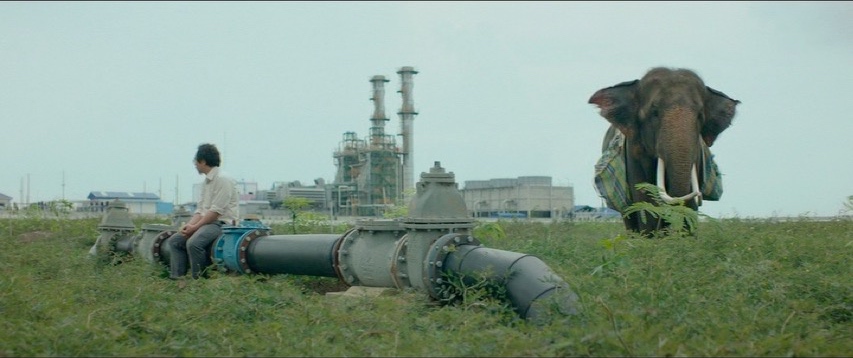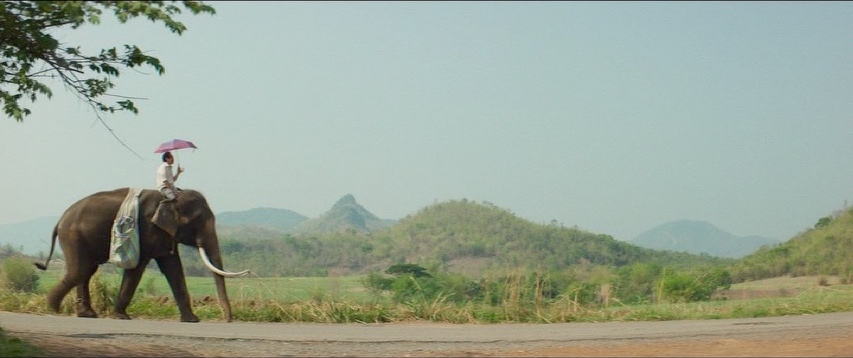« Coffee Break | Main | Sex in the Comix »
September 26, 2017
Pop Aye

Kirsten Tan - 2017
Kino Lorber Region 1 DVD
For myself, Pop Aye can be seen as a gently comic, Buddhist fable about transience and illusion. The film is more accessible and entertaining than the above description might suggest. It could also be that has been seen previously, sometimes the most interesting view is that of an outsider, in this case the Singaporean filmmaker in Thailand.
Tan's film follows Thana, an architect forcibly retired by the company he helped make famous thirty years ago, stuck in a marriage held together by formality. Thana discovers his former pet elephant, Popeye, now part of an itinerant circus, in the middle Bangkok. His backyard being an unsuitable home, Thana and Popeye hit the road for Loie, in northeast Thailand, Thana's rural boyhood home. In one flashback, we see that the elephant has been named after the famous cartoon sailor, who also makes a brief appearance, with villagers gathered outside around a small television.

Thana comes across an aging hippie with a death wish, a couple of cops flustered by having to travel "elephant speed" instead of "car speed", a past her prime prostitute, and a worn out ladyboy, among others. Among the delays are a patch of highway covered with shattered watermelons, and Popeye's occasional ability to wander off by himself. Thana encounters with the handful of people on the way are made up of kind gestures and unintended consequences.
Beyond the narrative, Tan is interested in the landscape of northern Thailand - the hills, fields, and the green and brown open spaces that make up what is known as upcountry. At one point, the camera is fixed on Thana while he is driving a truck, he is facing the left of the frame, while the scenery in the back is a succession of short shots of different points along the road, rice paddies, industrial areas and small towns. I don't know if the story structure, with jumps to the past, was in the script, or how much of the shifts in time, as well as the more abstract visual moments, belong to ace editor Lee Chatametikool, most famous for his work for Apichatpong Weerasethakul.
It should be noted that this is Tan's first feature, while supported by a veteran team. An unusual choice was made in the soundtrack, with a relatively new composer, Matthew James Kelly creating a distinctive score. The music is inspired by surf and Hawaiian pop instrumentals from the late Fifties and early Sixties, often with a steel guitar as the lead instrument. Several Thai pop songs are featured as well.
What will be lost to western audiences are the changes in dialect as Thana travels north. Other bits of humor that need no explanation include a Buddhist monk who cheerfully lets Thana know that he can pay for his donation with a Visa card, and a television commercial for a too tall, multi-purpose spiraling skyscraper optimistically named Eternity.
Posted by Peter Nellhaus at September 26, 2017 07:56 AM
